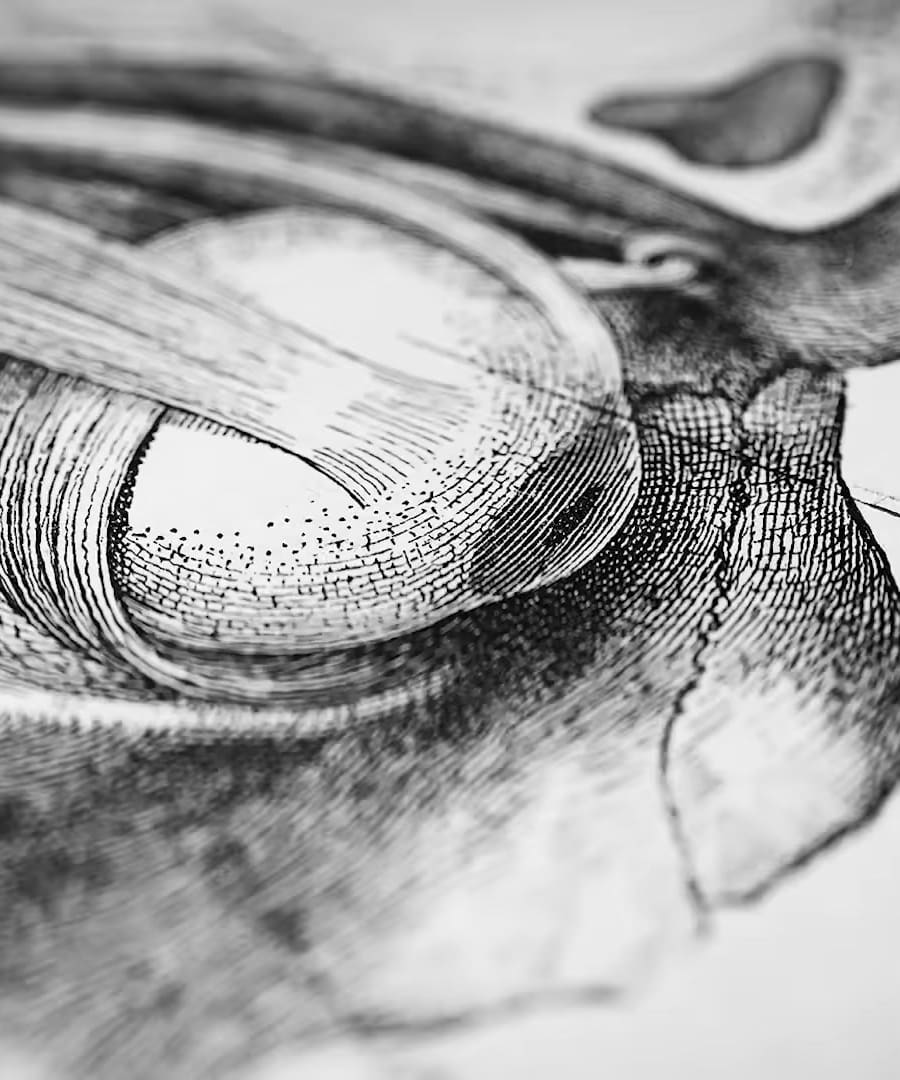Parkinson
Sources:
Here are some notable experts who have discussed Parkinson's disease on the :
-
- Title: Professor of Neuroscience and Psychology at the University of California, Berkeley.
- Expertise: His research includes neurochemicals, concussion, traumatic brain injury, Alzheimer's, and Parkinson's disease.
-
- Title: MD, PhD, Professor of Psychiatry at Stanford University.
- Expertise: Focuses on neuroplasticity and has made significant contributions in how the brain changes in response to learning and rewarding experiences.
-
- Title: Professor of Biology and Neurology at Stanford University.
- Expertise: Known for his pioneering research in neuroendocrinology, particularly on how stress affects health and disease.
-
- Title: Neurosurgeon and Professor at Stanford University.
- Expertise: Specializes in brain health and injuries, including concussion, traumatic brain injury, stroke, and neurodegenerative diseases such as Parkinson's.
These experts have provided valuable insights into Parkinson's disease through their interviews and discussions, highlighting various aspects of the condition, including its mechanisms and potential treatments.
RELATED QUESTIONS-
Gut
Sources:
Here are some experts who have discussed gut health, microbiology, or the gut-brain axis on the :
-
- Title: Professor of Microbiology & Immunology at Stanford University
- Expertise: Focuses on the gut microbiome's influence on mental and physical health, emphasizing diet and environmental factors.
-
- Title: Professor of Medicine and Neurobiology at Duke University
- Expertise: Studies how the gut communicates with the brain and the body through hormones and neural connections.
-
- Title: Podcast Host and Health Expert
- Expertise: Known for discussions on health, wellness, and science, including the effects of the gut microbiome.
These experts have shared valuable insights, particularly on the critical roles of the gut microbiome and its impact on overall health.
RELATED QUESTIONS-
Gut parkinson
Sources:
Gut-Parkinson's Disease Connection
The relationship between gut health and Parkinson's disease has been discussed in the by .
-
Dopamine and Parkinson's:
- Parkinson's disease is associated with a depletion of dopamine neurons in the brain, leading to symptoms such as tremors, mood blunting, and challenges in movement and speech.
- L-tyrosine, an amino acid found in foods, is a precursor to dopamine. While dopamine's synthesis is influenced by gut-derived nutrients, the dopamine neurons responsible for motor control and mood reside in the brain.
- Parkinson's patients often require L-dopa to compensate for dopamine deficits, highlighting the importance of both brain and gut interactions in managing the disease 1.
-
Dopamine and Vomiting:
- Dopamine's role extends to the gut-brain axis, where high levels of dopamine can trigger vomiting. This is particularly relevant in the context of Parkinson's treatment with drugs like L-dopa, which can sometimes increase dopamine levels to the point of inducing nausea.
- The gut's sensory neurons communicate with the brain to regulate food intake and prevent overconsumption, modulating behaviors through dopamine signaling 2.
These insights underscore the complex interplay between gut health and neurological functions, especially in diseases like Parkinson's.
RELATED QUESTIONS-
What research supports the gut-Parkinson's link?
Unfortunately, I couldn't retrieve specific clips directly discussing research that supports the gut-Parkinson's disease link. However, has emphasized the importance of both dopamine synthesis and the interaction between the gut and brain in managing Parkinson's symptoms.
General Insights:
-
Dopamine Synthesis:
- Parkinson's disease is characterized by dopamine neuron depletion in the brain. Nutrients from the gut, like L-tyrosine, contribute to dopamine production, emphasizing a gut-brain connection 1.
-
Gut-Brain Axis:
- The gut communicates with the brain via sensory neurons, influencing behaviors and responses such as food intake and vomiting through dopamine signaling 2.
While direct citations on specific studies are not available, these explanations highlight the broader scientific context discussed in the . For more detailed scientific studies, considering looking into peer-reviewed articles on the gut-brain axis and Parkinson's disease.
RELATED QUESTIONS-
Autism
Sources:
has discussed several aspects of autism on the , often focusing on its genetic and environmental influences, diagnostic complexities, and intervention strategies. Here are some key insights:
Prevalence and Diagnosis
- The frequency of autism diagnoses has increased, partly due to better detection methods. Clinicians can now diagnose children as young as 2-3 years old, whereas earlier diagnoses occurred around 9-10 years of age 1.
- Autism diagnosis is behavioral, looking for pervasive social interaction challenges and restricted repetitive behaviors. Other traits often include anxiety, sensory challenges, seizure disorders, and sleep issues 1.
Genetic and Environmental Factors
- Autism is highly heritable, with genetic factors accounting for 40-80% of cases. Common genetic variants, often additive, predominantly influence autism 2.
- Environmental factors such as advanced parental age, prematurity, and maternal illness during pregnancy can increase autism risk. Studies have also explored neuronal migration issues during early development, potentially affected by prenatal ultrasound 3 4.
Spectrum Understanding
- Autism is considered a spectrum with varying severity and traits, indicating potentially multiple intersecting conditions rather than a single disorder. This complexity makes diagnosis and treatment challenging 2 5.
Intervention Strategies
- Early behavioral interventions can be crucial. If a high-risk infant sibling of an autistic child is identified, early intervention programs might be initiated even before a formal diagnosis 4.
These insights help illustrate the multifaceted nature of autism, highlighting both the advances in understanding and the ongoing challenges in diagnosis and treatment.
For a deeper dive into these topics, refer to the full episode "Dr. Karen Parker: The Causes & Treatments for Autism" on the .
RELATED QUESTIONSMicrobiome
Sources:
has explored the important role of the microbiome extensively on the . Here are some key takeaways:
What is the Microbiome?
- The microbiome consists of trillions of microorganisms living throughout your body, including the digestive tract, nose, skin, and other mucous membranes. These microorganisms can significantly impact health, affecting hormonal, brain, and immune system functions 1 2.
Benefits of a Diverse Gut Microbiome
- A diverse microbiome is advantageous for immune system function, hormone regulation, and the gut-brain axis, which plays a role in mood and motivation. Specific foods, especially low-sugar fermented foods, can support this diversity 2.
- Foods that benefit the microbiome include sauerkraut, kimchi, Greek yogurt, kombucha, and Japanese nato. These foods can significantly improve gut function, reduce inflammation, and support mental and physical health 2.
Impact on Mental Health
- There is a strong correlation between gut microbiome diversity and mental health. Studies have shown that greater microbial diversity is associated with reduced loneliness and enhanced emotional wellbeing. The diversity of gut microbiota can influence mood and depressive symptoms 3.
Early Life and Microbiome Development
- The diversity of the microbiome established in the first three years of life is crucial for long-term health outcomes. Factors influencing this include delivery mode (cesarean vs. vaginal), breastfeeding, exposure to pets, and antibiotic use. A diverse microbiome established early in life supports better brain-to-gut and gut-to-brain signaling and overall immune health 4.
Microbiome and Autism
- Research has shown that particular types of microbiota, such as L. reuteri, can help offset symptoms of autism in mouse models by activating the vagus nerve and stimulating dopamine and oxytocin release. While this is promising, it is currently based on animal studies and highlights the potential for microbiome interventions in neurological disorders 5.
Evolution of the Microbiome
- Studies on traditional populations with different lifestyles suggest that their microbiomes are more representative of the microbiomes that humans evolved with. Comparing these to microbiomes in industrialized societies raises questions about what constitutes a "healthy" microbiome in different environmental contexts 6.
Together, these insights underscore the importance of the microbiome in overall health and the potential for diet, lifestyle, and early life interventions to shape a healthy microbiome. For more detailed insights, several episodes of the discuss these topics, including episodes with experts like Dr. Justin Sonnenburg.
RELATED QUESTIONSParkinson
Sources:
has discussed Parkinson's disease in several episodes on the , shedding light on the impact of dopamine, treatment methods, and placebo effects. Here are some key insights:
Dopamine and Parkinson's
- Parkinson's disease involves the degeneration of dopaminergic neurons in the substantia nigra, a brain region crucial for smooth movement patterns like walking and reaching. This degeneration affects both movement and mood, leading to deficits in motivation and reward pathways 1.
- Common treatments include drugs that increase dopamine levels, such as L-dopa. While these drugs can partially improve symptoms, they are not a cure. Parkinson’s often manifests initial symptoms like tremors, mood blunting, and motivational deficits and can progress to severe motor and speech challenges 2.
Placebo Effects
- Fascinatingly, placebo treatments in Parkinson's patients have shown to increase dopamine release in the brain, despite the placebo having no pharmacological action. Studies have used PET scans to demonstrate that patients believing they were receiving dopamine-enhancing medication exhibited real increases in brain dopamine levels 1 3.
Advanced Treatments
- Deep brain stimulation (DBS) has also been effective in treating Parkinson's. This involves electrically stimulating specific brain areas to alleviate symptoms such as tremors. Interestingly, this not only helps with motor symptoms but can also improve psychiatric comorbidities like depression and obsessive-compulsive disorder (OCD), as stimulating certain brain regions can impact both motor and emotional circuits 4.
Additional Insights
- Dr. Jack Feldman and noted that diseases like Parkinson’s often lead to breathing disturbances during sleep in advanced stages. This could potentially be a proximate cause of death, highlighting the need for better management of respiratory aspects in neurodegenerative diseases 5.
For more detailed insights, these topics are explored in various episodes of the .
RELATED QUESTIONS
Parkinson
- RELATED QUESTIONS
Gut
- RELATED QUESTIONS
Gut parkinson
- RELATED QUESTIONS
What research supports the gut-Parkinson's link?
- RELATED QUESTIONS
Autism
- RELATED QUESTIONS
Microbiome
- RELATED QUESTIONS
Parkinson
- RELATED QUESTIONS
















